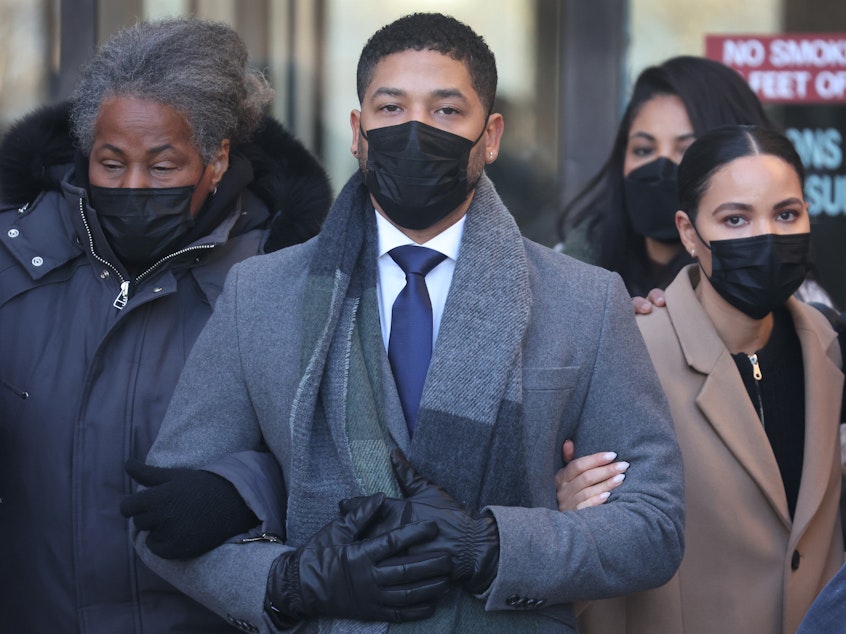Jussie Smollett found guilty of disorderly conduct in trial over his alleged attack

A jury in Cook County, Ill., has found actor Jussie Smollett guilty of felony disorderly conduct for staging a fake hate crime nearly three years ago.
Prosecutors said the former Empire star arranged for two men to attack him, wrap a noose around his neck and douse him with bleach in downtown Chicago, yelling racist and homophobic slurs — and that Smollett repeatedly lied to the police about the incident.
Updated December 9, 2021 at 7:20 PM ET
The verdict was announced Thursday, days after Smollett took the witness stand to tell the jury, "there was no hoax."
Jurors deliberated for a little more than nine hours before finding Smollett guilty on five of the six counts he faced, which were related to a false report he gave on the day of the attack. He was acquitted on one count of giving a false report to police at a later date.
"That verdict was a resounding message by the jury that, in fact, Mr. Smollett did exactly what we said he did," special prosecutor Dan Webb said at a press conference after the jury's decision was announced.
The 39-year-old Smollett now faces up to three years in prison. A sentencing hearing has not been set.
Central to the prosecution's case was the testimony of two brothers who told jurors that Smollett hired them to carry out the attack in January of 2019, saying the actor paid them $3,500 and gave them $100 for expenses.
Prosecutors say they believe Smollett wanted to use the attack to gain publicity for himself. Abimbola and Olabinjo Osundairo, the two bodybuilding brothers who said Smollett hired them, said they believed the actor and musician would use the incident to get media attention — not to file an alleged hate crime with the police.
Smollett testified that he did write a $3,500 check to Abimbola Osundairo — but he said the money was to pay for nutrition and training, not to stage a crime.
The trial has been the source of convolutions and controversy, eventually requiring the appointment of a special prosecutor. [Copyright 2021 NPR]

